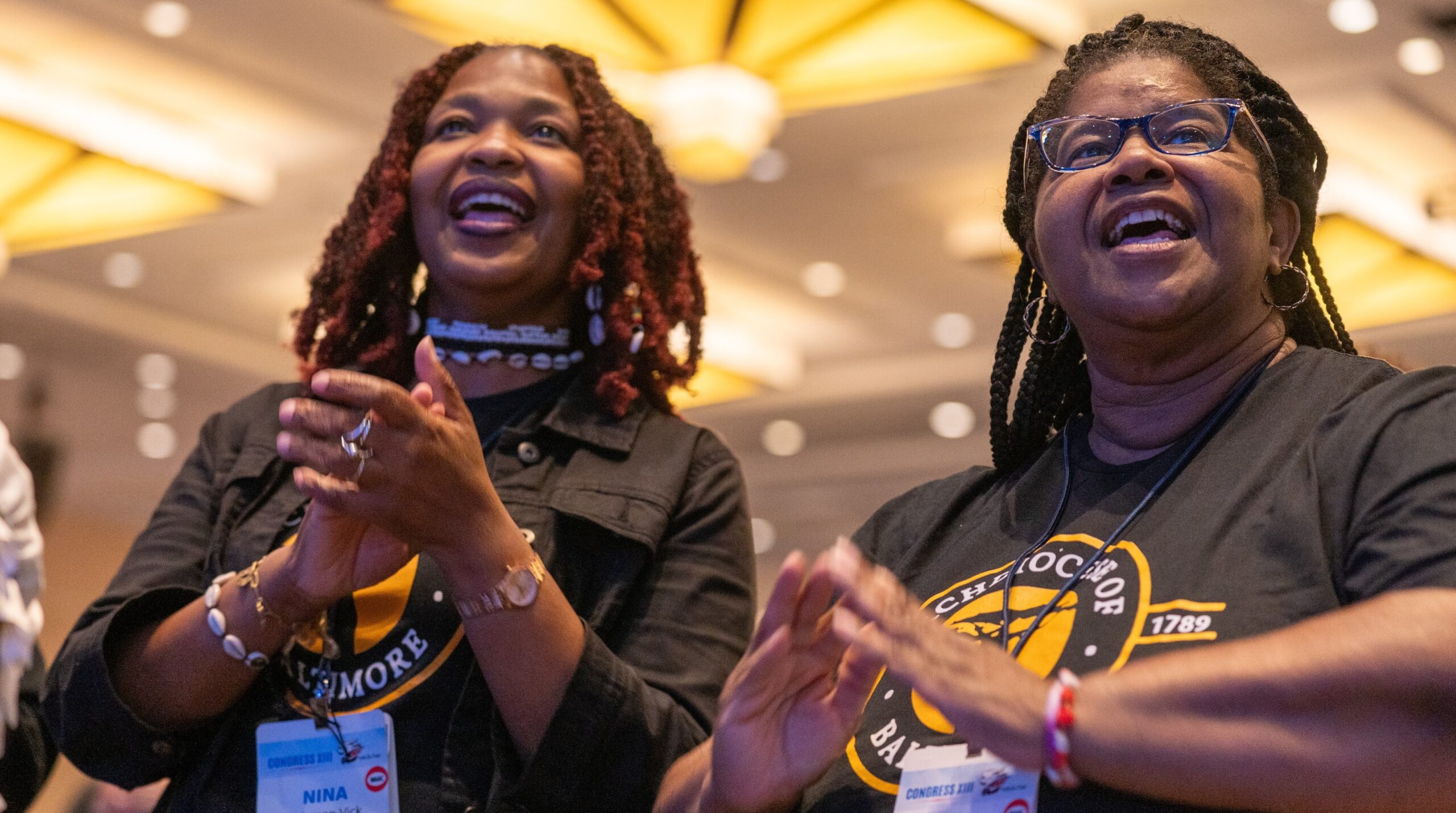‘The church needs our gifts’: Black Catholics at national congress reflect on their calling
NATIONAL HARBOR, Md. — As people left the July 23 closing Mass for the National Black Catholic Congress, Vernon Taylor of St. Joseph’s Parish in Wilmington, Delaware, said he was moved particularly at the end of Mass when Washington Auxiliary Bishop Roy E. Campbell Jr., the congress’ president, invited any young people considering a vocation to the priesthood or religious life to come up for a blessing — and some young adults, teens and children stepped forward.
“The most moving thing to me, and it really brought tears, was to see the young folks go up to profess their faith and potential vocation,” Taylor, a member of the Knights of Peter Claver who over the years served as an Army National Guard officer and as a magistrate in the Delaware court system, told Catholic Standard, the Washington Archdiocese’s newspaper.
Also attending the congress was Sister Sylvia Thibodeaux, a member of the Sisters of the Holy Family in New Orleans.
“I think it was a wonderful testimony that the Catholic faith is still strong and vibrant among our people,” she said, noting the strong presence of elders and also of youth at the four-day gathering at the Gaylord National Resort & Conference Center in National Harbor.
When asked by Catholic Standard what touched her heart the most about the gathering, Sister Sylvia said it was that “people are finding hope in the church. There is a seat at the table for us.”
Nicholas and Missy Leverette of St. Peter Claver Parish in Lexington, Kentucky, attended the National Black Catholic Congress with their eight children and shared their experience with Catholic Standard.
Missy Leverette, who sang in the choir at the congress, held their 10-month old daughter Soleil as the family walked together from the closing Mass.
“Although it feels like we (Black Catholics) are in a super minority sometimes, events like these remind us we’re not,” she said. “We’re a powerhouse and a part of the soul of the Catholic Church.”
Her husband said he appreciated the message of Bishop John Ricard’s homily about Black Catholics keeping and sharing the faith — “not to let the fire go out, keep the fire burning.”
Nicholas Leverette said it was also reassuring to him to see their son Lux Leverette, 12, step forward at the end of Mass to express his interest in the priesthood.
Asked what interested him about priesthood, Lux Leverette explained, “In general, the whole idea to go wherever is needed and help people is very pleasing to me.”
Fiona Williams, a rising junior at Howard University in Washington majoring in chemistry, told Catholic Standard that a highlight for her was connecting with students from New Orleans’ Xavier University of Louisiana, the nation’s only historically Black Catholic university, and having “conversations with young adults on how we can create our space in the church.”
Before the opening plenary session on July 21 at the National Black Catholic Congress, participants also shared with Catholic Standard the importance of the gathering to them.
Adrienne Curry, director of the Baltimore Archdiocese’s Office of Black Catholic Ministries, noted her diocese’s delegation included 76 people.
“It’s important we gather, have fellowship, listen to each other, learn from each other and work on a plan of action,” she said of the pastoral plan that will be drawn up after surveying participants.
Father Stephen Thorne, a Philadelphia Archdiocese priest who serves as a consultant for the National Black Catholic Congress, said he would be working to gather those survey results in order to formulate the pastoral plan emanating from this year’s congress.
The priest said he began participating in the congress as a youth delegate in 1987 and he explained the pastoral plan would provide an opportunity to bring to life the congress’s theme, “Write the Vision: A Prophetic Call to Thrive,” which is inspired by Habakkuk 2:2.
“It’s God’s vision, not ours. We have to listen to what God is saying to us at this moment in our church and society,” Father Thorne said. “We can be prophetic, (seeking) what is God calling us to do. We can evangelize and address the issues most important to Black Catholics.”
Key issues raised, he said, include the need to engage youth and young adults in the church, to promote vocations to the priesthood and religious life, and to address challenges like racism and community violence.
The National Black Catholic Congress also offered a time for participants to reflect on the legacy of the six U.S. Black Catholics being considered for sainthood, whose portraits were displayed in large banners behind the main stage where plenary sessions were held and Masses were celebrated during the gathering.
Sister Stephanie Henry from Philadelphia, the president of the Blessed Sacrament Sisters founded by St. Katharine Drexel, said she had actually met and spoken with one of those potential Black Catholic saints, Sister Thea Bowman, a dynamic evangelist who died of cancer in 1990 and is a declared “servant of God”.
“Her whole being radiated praise and joy,” Sister Stephanie told Catholic Standard. “She (Sister Thea) would speak about difficult things like racism in the church without giving the audience a sense they were condemned. But it was a call to grace, to be what the church was meant to be, and include everyone’s gifts. (She emphasized) Black Catholics have a place in the church. We belong here, and the church needs our gifts.”
This article was written by Mark Zimmermann, editor of the Catholic Standard, newspaper of the Archdiocese of Washington.
Featured image: Nina Shipman-Vick and Valerie Grays from the Archdiocese of Baltimore participate in the opening plenary session of the 13th National Black Catholic Congress July 21, 2023, at the Gaylord National Resort & Convention Center in National Harbor, Md. (OSV News photo/Mihoko Owada, Catholic Standard)



